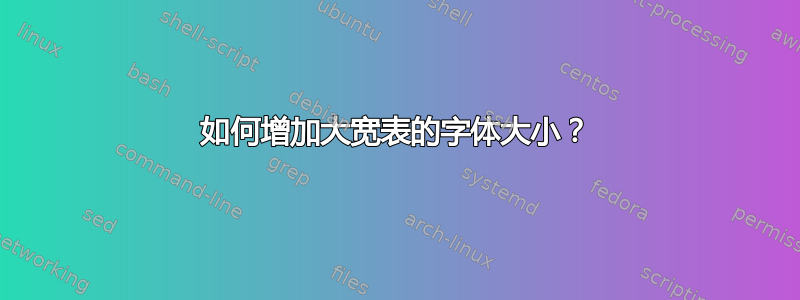
最近,我收到一份期刊的重大修订,审稿人抱怨说“表 4 难以阅读”。PDF 版本的表格快照如下...此外,表格的 latex 代码是
\begin{table*}[h!]
\caption{SRE approaches- at a glance}
\Large
\begin{adjustbox}{max width=\textwidth}
\renewcommand{\arraystretch}{1.7}
\begin{tabular}{lllllcccc}\toprule
\textbf{SRE approaches} & \textbf{Model/technique adopted} & \textbf{Elicitation technique used} &\textbf{Integration of standards}& \textbf{Size of project} & \textbf{ Threat modeling } & \textbf{Risk analysis} & \textbf{Tool support} & \textbf{Industry adoption} \\
\midrule
& Goal – Oriented approach, uses & Interviewing, existing & - & large & Yes & No & Yes & No \\
{KAOS}& anti-models for modeling & systems study & & & & & (Objectiver) & \\
& threats & & & & & & & \\[2pt] \hline
{Secure i*} & Agent Oriented approach, & artefacts analysis, & - & large & No & No & Yes & Not reported \\
& uses i* modeling framework & Interviews & & & & & (ST-Tool) & \\ [2pt] \hline
{Secure Tropos} & Agent oriented approach, & Constraints analysis & ISO/IEC 17799- & large & No & No & Yes & Not reported \\
& uses i* modeling framework & & & & & & (ST-Tool, SecTro) & \\ [2pt] \hline
{GBRAM} & goal based approach & - & - & medium & No & Yes & No & No \\
& & & & & & & & \\[2pt] \hline
& Problem Frame based approach, & - & ISO13335 & medium & No & No & No & No \\
{Abuse Frames}&uses constraints for security & & & & & & & \\
&goal modelling & & & & & & & \\[2pt] \hline
{SEPP} & Uses security patterns, security & - & CC & large & Yes & No & No & No \\
&problem frames and templates & & & & & & & \\ [2pt] \hline
{SREF} & Goal based approach & - & - & large & Yes & No & No & Not reported \\
& & & & & & & & \\[2pt] \hline
{CORAS} & Uses security-risk model & Meeting with the clients & ISO31000 & large & Yes & Yes & Yes & not reported \\
& inspired by UML & & & & & & (CORAS Tool)& \\[2pt] \hline
{SREP} & Based on unified process & - & CC & - & Yes & Yes & No & Not reported \\
& model of SDLC & & & & & & & \\[2pt] \hline
{Microsoft’s threat } & Based on STRIDE and DREAD & - & - & medium & Yes & Yes & Yes & Yes \\
modeling & methodology & & & & & & (Threat Modeling Tool) & \\[2pt] \hline
{CLASP} & Adopts Resource centric & Interviewing/existing & - & large & Yes & Yes & No & Yes \\
& methodology & artefacts analysis & & & & & & \\[2pt] \hline
& Adopts a Series of prescriptive & Any & - & - & Yes & Yes & Yes & Yes \\
{SQUARE}& steps for eliciting,analyzing & & & & & & (P-SQUARE, eSQUARE) & \\
& and categorizing requirements & & & & & & & \\[2pt] \hline
& Adopts Multilateral Security & - & - & large & No & No & No & No \\
{MSRA}& concepts and View – point oriented & & & & & & & \\
& Requirements Engineering & & & & & & & \\[2pt] \hline
{SRE methods based } & Adopts and uses agile & User stories & - & large & Yes & No & No & Yes \\
on AGILE & methodology with security & & & & & & & \\[2pt] \hline
{Secure UML} & Based on UML and Model & - & - & medium & No & No & Yes & No\\
& based Architecture & & & & & & (Visio-based template) & \\[2pt] \hline
& Based on extension of UML & - & ISO/IEC 15408, ISO/IEC 27001,& medium & No & No & Yes & No \\
{UMLsec} & for secure systems development & & ISO/IEC 17799, ISO/IEC 13335, & & & &(CARISMA) & \\
&&& IEEE 830-1998&&&&& \\[2pt] \hline
& Based on extension of UML & Brain-storming &-& small & Yes & Yes & No & Yes \\
{Misuse Case}& use case to model threat & & & & & & & \\
& and risks & & & & & & & \\[2pt] \hline
& Model oriented framework for & Any &-& medium(web-based) & Yes & Yes & No & No \\
{MOSRE}& elicitation, analysis and traceability & & & & & & & \\
& of security requirements & & & & & & & \\[2pt] \hline
& Iterative process based on & - & ISO/IEC Guide 73, ISO/IEC 27001 & large & Yes & Yes & No & Not reported \\
{ISSRM}& existing risk analysis standards & & AS/NZS 4360,ISO/IEC 13335-1 & & & & & \\
& and methods & & & & & & & \\[2pt] \hline
{Ontology based } & Based on reuse of Security & ontology & ISO/IEC 27001, ISO/IEC 27002 & small (domain-specific) & Yes & Yes & Yes & No \\
SRE approaches& ontologies & & & & & &(Protege) & \\
& & & & & & & & \\[2pt]
\bottomrule
\end{tabular}
%
\label{tab:1}
\end{adjustbox}
\end{table*}
如何增强此表的可读性


